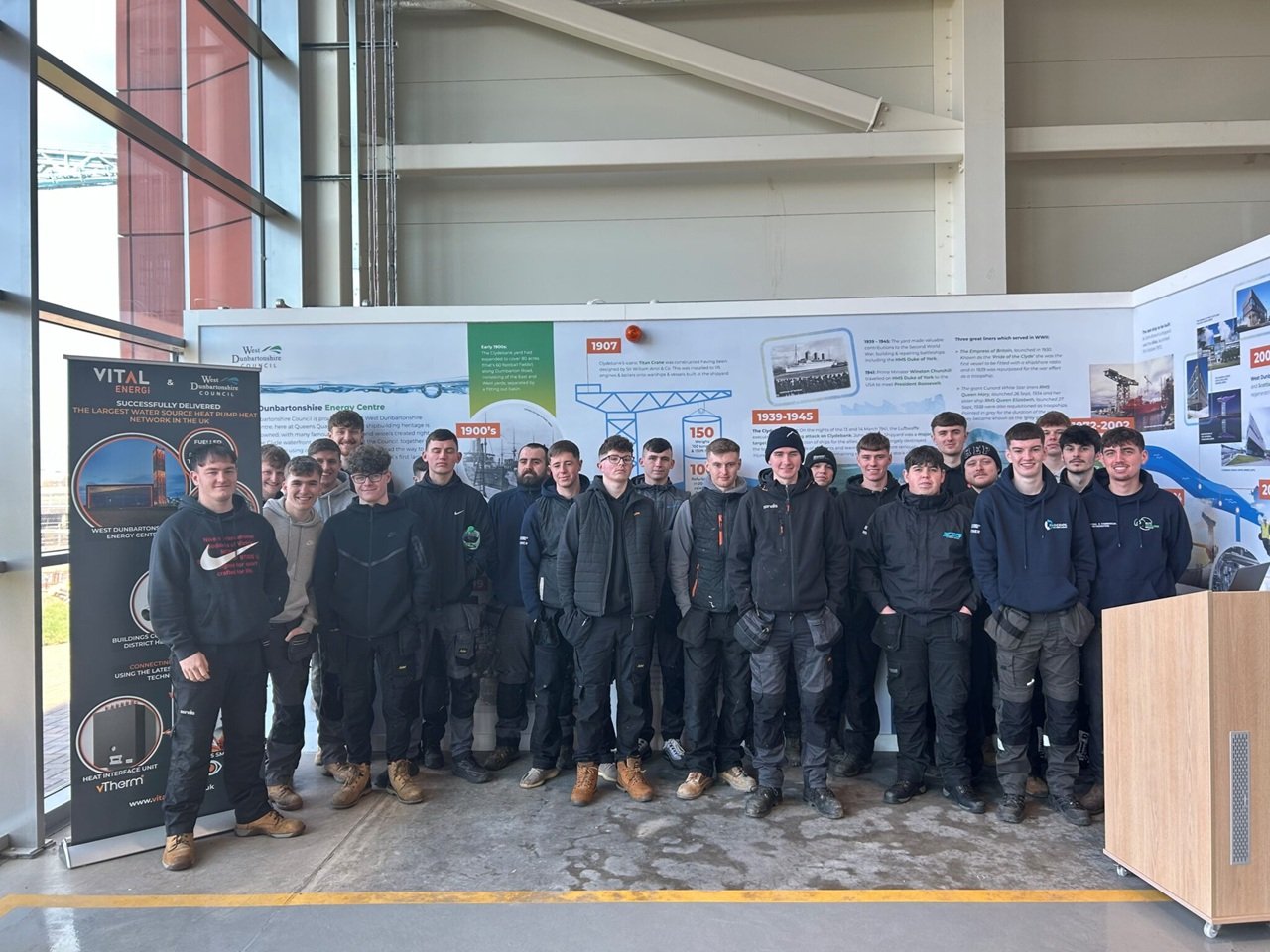Glasgow Kelvin College students tour Clydebank's 2.6MW ammonia-based heat pump site.
Students from Glasgow Kelvin College and members of the Institute of Refrigeration (IOR) recently toured the Queens Quay Energy Centre in Clydebank, home to the UK’s largest water-source district heat pump. The educational visit offered a firsthand look at a major low-carbon heating initiative, organised by Star Refrigeration, Vital Energi, and West Dunbartonshire Council.
The site features two ammonia-based heat pumps, each rated at 2.6 MW, engineered by Star Refrigeration and integrated by Vital Energi. These pumps extract heat from the River Clyde, supplying hot water and heating to local residences, council facilities, and businesses via a 5-kilometre district heating network.
Water from the river is filtered through self-cleaning systems to remove debris and prevent mussel colonisation before passing through titanium heat exchangers. The extracted thermal energy is then raised to temperatures between 75°C and 80°C by the heat pumps and circulated across the network. The cooled water is returned to the river approximately 3°C lower than intake temperatures.
The tour included discussions on recent system upgrades, such as improved heat exchangers and radiator systems in connected buildings. These changes have optimised network temperatures, increasing overall efficiency. Climate-related impacts were also addressed, with the facility noting river temperatures now reaching up to 21°C, compared to historical averages of 18°C–19°C.
“Educational visits like these offer an invaluable experience for students and industry professionals,” said Nicky Cowan, Star Renewable Energy Manager at Star Refrigeration. “At Queens Quay, we were able to showcase not just the engineering innovations behind the UK’s largest water-source heat pump scheme, but also highlight the practical challenges and solutions involved in delivering sustainable heating on a large scale.”
The project serves as a benchmark for other cities exploring sustainable heating solutions, with similar initiatives underway in Bristol, Jarrow, and Liverpool. Expansion plans at Queens Quay include adding new heat pumps, thermal storage, and extending connections to hospitals and new housing developments.
The Queens Quay system is expected to support a 23-hectare regeneration zone, supplying low-carbon heat to 1,000 private homes and 200 rented homes. As more users connect, efficiency is expected to increase, supporting both local infrastructure growth and national decarbonisation targets.
